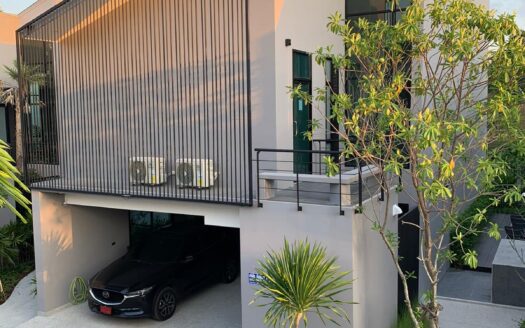The Changing Dynamics of Thailand Property Taxes
“I have heard rumors that an annual property tax might be levied as Thailand’s property taxes are changing. Are the rumors true? “
Yes, it is true that new property tax legislations have been made into law after several attempts over all these years to reshape the property tax system in Thailand.
Please note that the Government will be rolling out the annual property taxes slowly due to limited manpower. The current proposal is to get the collections done by local subdistrict administrative organizations in each sub-district.
The new tax law has become effective since the tax year 2020. It is the first land and building tax in Thailand. This new law has been devised to encourage the productive utility of land and for the improvement of tax collection on Thailand property besides decreasing income disparity.
Taxable properties
The tax applies to buildings, land, and condominium units. The new tax code is also inclusive of any construction that can be used as a residence, for storage, or industrial and commercial purposes.
Property owners are held potentially liable to taxation on their real estate holdings in Thailand. A generous tax exemption threshold will also become applicable. The new tax will be levied on property held on 1st January of the given tax year.
Here is a specific breakdown of the applicable tax categories:
- Land: Ground area including waterways and hills (rivers and seas are not regarded as land area)
- Buildings: Buildings, houses, boathouses, or any other habitable construction, or buildings that are usable for commercial and industrial purposes
- Condominiums: All condominium units that have not been assigned the title document within the Condominium Act
The Thai Government insists that these inclusive terminologies are sufficient to solve any problem of inconsistent interpretation by owners or relevant authorities on the definition of a “property.”
Tax base
According to the new law, the tax base is determined as the appraised value of the “property” at the Thailand Land Office. It is applicable on the property as determined for the purpose of getting a registration fee according to the Land Code. In situations where an appraised value is not available, the calculation of the tax base is done as per the criteria, conditions, and methods specified in the Ministerial Regulations.
The new appraisal value designated by the Property Appraisal Act is yet to be issued. Therefore, the former appraisal values applicable before the enactment of the new law will be continued to be used. The new appraisal values have been designated to be issued within 2 years.
The general anticipation is that the new appraisal values decided according to the Property Appraisal Act are bound to higher than the previous appraisal values, or they may be equivalent to the market value.
Tax rates
Stated here are ceiling rates, the maximum chargeable rate for one calendar tax year. These rates have been introduced into four distinct categories of Thailand property taxes.
- Properties that are used for agricultural purposes: 0.15%
- Properties that are used for residential purposes: 0.30%
- Properties used for purposes other than (1) and (2): 1.20%
- Vacant and unutilized properties: 1.20%
After 2022, the tax rates will be prescribed through the Royal Decree. The designated local authority empowered to get the tax holds power to impose a higher rate, but under no circumstance shall it exceed the ceiling rates.
For the first tax year of 2020, the property tax rates for condominiums had been announced. For instance, a condominium unit owned by someone who uses it as the place of residence has its name enlisted on the house registration book.
If a piece of land or a building has been undeveloped or left vacant for three consecutive tax years, the rate is subject to increase by 0.3% every three years, limited by a cap of 3%.
Tax exemptions
The new law allows for tax exemptions and relaxation. The implementation of the Act is set to affect both individual and corporate taxpayers holding real estate, whether commercially or non-commercially. With this in mind, the Government has allowed both long-term and short-term tax exemptions according to the following scenarios.
Short-term relaxation
- A low tax rate applicable for the tax year 2020-21 minimizing the burden of taxpayers
- Current property taxpayers have been allowed a three-year tax relaxation. The Act offers a tax relaxation for a property subject to property tax in the tax year 2020-22.
- Owners of agricultural properties have been allowed full tax exemption. For the tax year 2020-23, these properties are not subject to any land and building tax.
Long-term exemption for primary residence property
- A tax-exempt threshold of Baht 50 million will apply to land and buildings owned by individuals who are using it as their place of residence if their names show up on the house registration book on January 1st of the tax year.
- A tax-exempt threshold of baht 10 million will be applicable for buildings owned by individuals, where they are using it as a place of residence, but are not landowners.
Transitional relief
During the first three years that the new property tax will be collected, if the assessed tax is more than the previously payable tax under the House and Land Tax Act, the taxpayer is held liable to pay the house and land tax amount along with a percentage of the excess in each year, counted at 25% in the first year, 50% in the following year, and 75% in the last year.
IBG property is an established real estate agency based in Phuket. Our service is free for buyers as we help you buy villas and condominiums. We will conduct due diligence, management, and cover all legal issues in property dealings.






